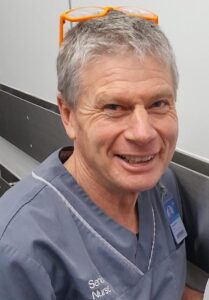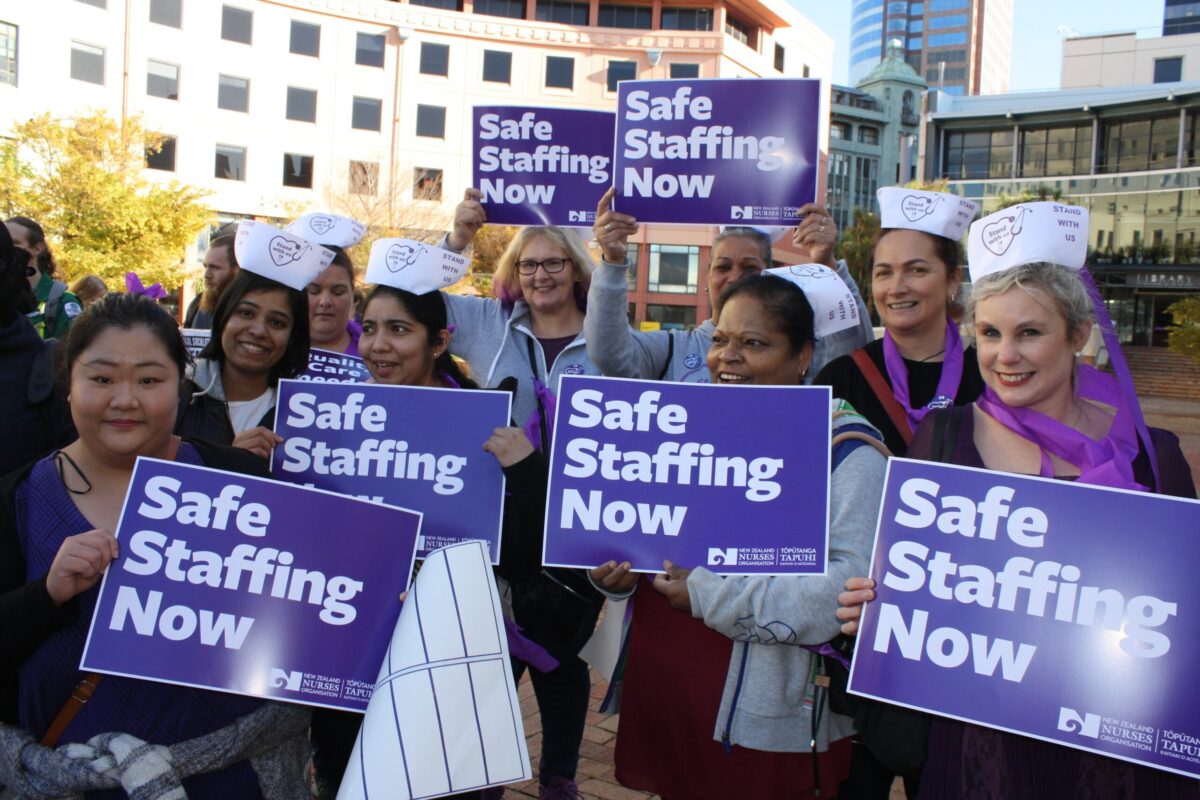The improvements are found in appendix 1b (p69) of your DHB-NZNO MECA — the healthy workplace agreement. It includes commitments made by the employer on safe workplaces, complying with the Health and Safety at Work Act (2015) and having sufficiently experienced nursing and midwifery staff. It also sets down an upgraded escalation pathway (p72) for an individual or team who find themselves in an unsafe situation.

The changes include a new term — “limit of safe practice” — which binds the escalation pathway to worker rights under the Health and Safety at Work Act.
The escalation pathway is a way for nurses on the floor to inform their manager when they consider themselves to be reaching, or approaching, their limit of safe practice. Members need to either phone or have a face-to-face conversation with a more senior manager to inform them they have reached their limit of safe practice.
The manager is then obligated to not increase that nurse’s (or team’s) workload and immediately address their concerns. The hospital operations manager is required to then review the situation, and assess whether they consider an “acute staffing shortage” exists or not ( defined under the pathway as “the acuity of the patient care required exceeding care hours available”).
If the situation is not immediately resolved, by redeploying staff from other areas or calling on pool staff, the manager must escalate it — and that escalation must continue to the top of the organisation if not resolved at a lower level.
Staff need to also document the situation on a limit of safe practice form available on NZNO’s website here and share it with their delegate or health and safety representative (HSR), as well as sending it to [email protected].
The escalation pathway will function in any workplace covered by the MECA, whenever work conditions are such that members consider they have reached the limit of safe practice due to an acute staffing shortage.
Te Whatu Ora’s responsibility to provide a safe workplace
The district health boards (now Te Whatu Ora) have final accountability to ensure that a safe system of work is provided. If Te Whatu Ora fails to meet its commitments, NZNO may apply to the Employment Relations Authority (ERA) for remedies, including penalties. These can include directives and/or fines.
Meanwhile, locally, NZNO HSRs will work with delegates to review whether the escalation pathway is functioning effectively in their workplace. If not, HSRs (with support of the workers) may take a range of actions under the health and safety legislation to drive the accountability off nursing shoulders and onto those of senior operational management, where it belongs.
If managers have not acted appropriately — by not following the process, trying to suppress the issue or it is the fourth time this week a limit of safe practice form has been filled out — other avenues may need to be explored.
If not, HSRs (with support of the workers) may take a range of actions under the health and safety legislation to drive the accountability off nursing shoulders and onto those of senior operational management, where it belongs.
A provisional improvement notice (PIN) can be issued to the employer by the HSR, alerting them to a possible breach of health and safety laws, under which management were legally accountable.
National action
Another option is national action. NZNO and other health unions can examine the limitations of safe practice reports across the country and the number of enforcement actions being taken by HSRs. If there is a clear trend of continuing unsafe staffing situations, unions can then advocate at a much higher level — either directly with the employer or by taking legal action through the ERA.
Regionally, organisers will be reviewing both the limit of safe practice assessments and health and safety actions underway. They will coordinate any regional or national initiatives needed when local thresholds have been breached.
We are aware of reported incidents where patient harm has resulted from unsafe staffing — including death. I encourage you to escalate your concerns when working in an unsafe environment — it is crucial for our patients as well as ourselves.
Ben Basevi is a safe staffing coordinator, lead NZNO delegate and health and safety representative at Te Toka Tumai (formerly Auckland DHB).





